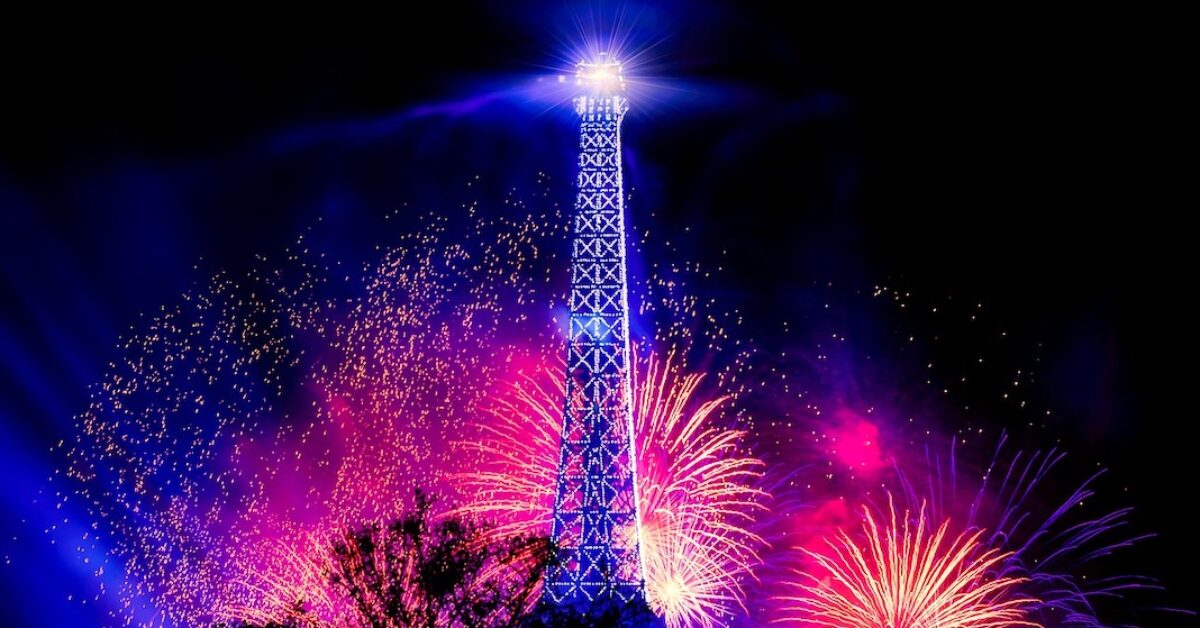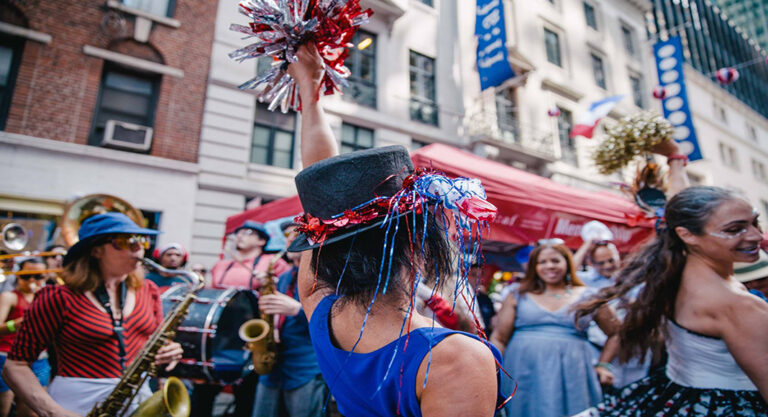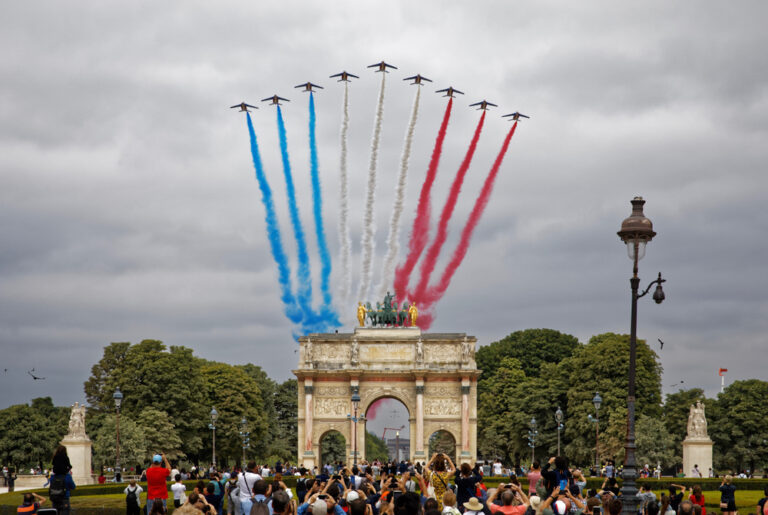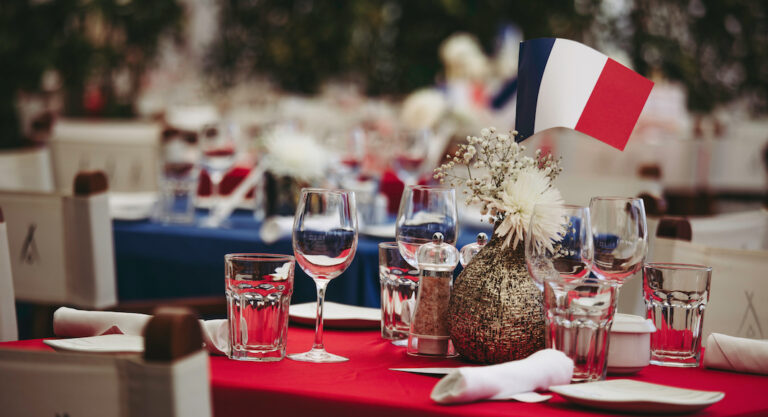In the United States, we don’t celebrate India’s independence from the British by making tandoori chicken, and we don’t celebrate Ireland’s independence (also from the British) with a second St. Patrick’s Day. We do celebrate our own independence (wow, also from the British, what a surprising trend!) on July 4th with fireworks, barbecues, and beers.
The French clearly have a legitimate reason to celebrate their national holiday on July 14—they’re French, France their country. But why are Americans (and really all Anglophones around the world) breaking out berets, fake mustaches, and baguettes for France’s independence? And why do we Americans call it “Bastille Day” when the French call it “la Fête Nationale” or “le 14 Juillet“?
The Origins of La Fête Nationale
The French began celebrating la Fête Nationale in 1880 because the newly established (and still scrambling) Third Republic was looking to strengthen the national patriotic identity. Contrary to the belief of many Americans, it’s not a celebration of July 14, 1789—the date of the storming of the Bastille prison. In fact, la Fête Nationale celebrates July 14, 1790—the date of “la Fête de la Fédération.” At la fête de la Fédération, 14,000 soldiers from all over France came to Paris to march from the Bastille to the Champ de Mars in celebration of national unity during troubling times. So, la Fête Nationale is an anniversary celebration of national unity, celebrating a celebration of national unity. (So meta.)
The Name “Bastille Day”
The main explanation for the misnomer seems practical: It’s not possible to literally translate “Fête Nationale” or even “Fête du 14 Juillet” in English without making it incomprehensible. (They translate to “National Celebration” and “Celebration of July 14th,” respectively.) The holiday needed a name that allowed everyone to understand that the day was in reference to France, and its history. Hence, “Bastille Day.”
Presence in the US
Though it’s difficult to identify the origin of the expression, the oldest use of the phrase “Bastille Day” in the US goes back to 1906 in Kaplan, Louisiana. A Frenchman, Eugene Eleazar, had been trying to get people interested in celebrating la Fête Nationale in New Orleans and nearby Rayne, to no success. But in Kaplan, he found that farmers “would travel for miles to attend a [Bastille Day] observance.” Since that first year, everyone in Kaplan, many of whom are descendants of French settlers who migrated from Canada to Louisiana, have celebrated France’s national holiday. As a phrase, “Bastille Day” spread quickly. In the archives of the New York Times, the first mention of a New York “Bastille Day” is in 1917.
It’s the French restauranteurs who should be credited with the development of “Bastille Day” across the country, first between the two World Wars, and then again in the 1960s. One restaurant-related tradition in particular, begun in France between the two wars and now largely obsolete throughout l’Hexagone, spread through the US quickly: a restaurant waiters’ race while balancing glasses on trays. It was restauranteur Dominique d’Ermo, a prominent figure in the food scene in Washington DC, who brought this national holiday custom to the States in 1974.
There are no fireworks for Bastille Day in the US (we used them all for the Macy’s display over the East River on July 4th), but there’s plenty of wine, French food, and—of course—pétanque. More than 50 cities around the country celebrate le 14 Juillet (usually on the closest Sunday to the actual date), often with their own traditions.
So this July 14, raise a glass to to Eugene Eleazar for his persistence to get Americans interested in la Fête Nationale, and give a nod to the people of Kaplan for their open-mindedness toward “Bastille Day.” And if you’re fortunate enough to have French friends, prove yourself to be one of the enlightened Americans, and call it “le 14 Juillet.”






